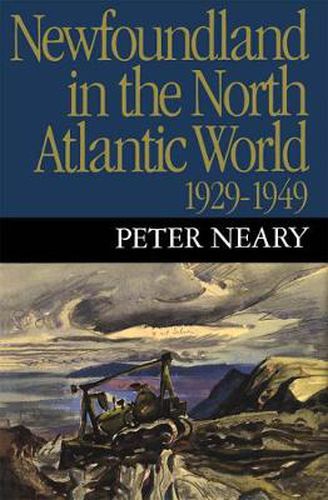Readings Newsletter
Become a Readings Member to make your shopping experience even easier.
Sign in or sign up for free!
You’re not far away from qualifying for FREE standard shipping within Australia
You’ve qualified for FREE standard shipping within Australia
The cart is loading…






Neary draws material from both public and private sources in the United Kingdom, Canada, the United States, and Newfoundland. Following a brief summary of major developments in Newfoundland before 1929, he gives an account of the tumultuous events that led to the demise of responsible self-government and the establishment of a British-appointed Commission of Government in 1934. He details and evaluates the major policies of the commission during three distinct phases: the continuing hard times of the 1930s, the boom years of the Second World War, and the period of post-war adjustment. The reasons for constitutional change are examined and Neary explains clearly why Newfoundland became a province of Canada in 1949. Through a fine blending of domestic and international history, he reveals the intricate connections between events in Newfoundland and in the rest of the North Atlantic World, providing a balanced view which takes into account constitutional, political, economic, and social developments. He acknowledges the role of British, Canadian, and American policymakers in determining the course of events in Newfoundland and illuminates the role that Newfoundlanders themselves played at a critical time in their history.
$9.00 standard shipping within Australia
FREE standard shipping within Australia for orders over $100.00
Express & International shipping calculated at checkout
Neary draws material from both public and private sources in the United Kingdom, Canada, the United States, and Newfoundland. Following a brief summary of major developments in Newfoundland before 1929, he gives an account of the tumultuous events that led to the demise of responsible self-government and the establishment of a British-appointed Commission of Government in 1934. He details and evaluates the major policies of the commission during three distinct phases: the continuing hard times of the 1930s, the boom years of the Second World War, and the period of post-war adjustment. The reasons for constitutional change are examined and Neary explains clearly why Newfoundland became a province of Canada in 1949. Through a fine blending of domestic and international history, he reveals the intricate connections between events in Newfoundland and in the rest of the North Atlantic World, providing a balanced view which takes into account constitutional, political, economic, and social developments. He acknowledges the role of British, Canadian, and American policymakers in determining the course of events in Newfoundland and illuminates the role that Newfoundlanders themselves played at a critical time in their history.